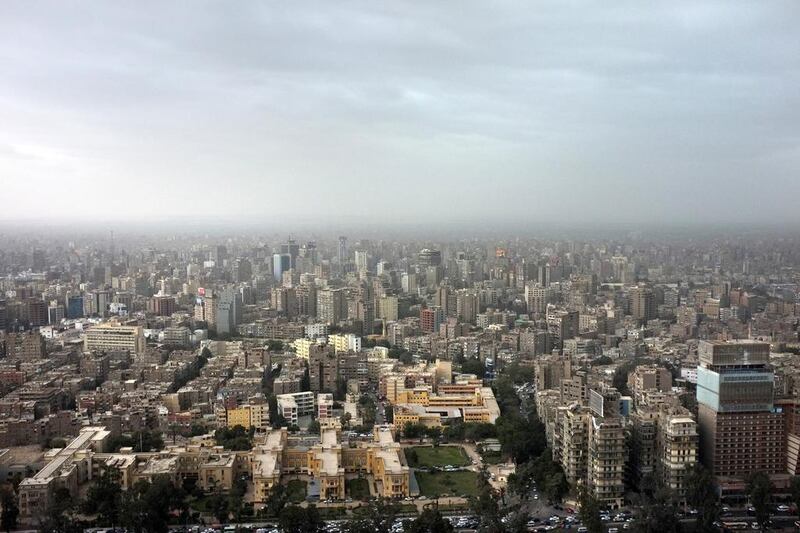The International Monetary Fund agreed to disburse another $2 billion (Dh7.34bn) out of Egypt’s $12bn aid package as the North African country continues to undertake reforms that have helped it boost growth, reduce inflation and narrow its current account deficit.
The latest tranche, which needs approval by the IMF’s executive board, will bring total disbursements to $10bn, said Subir Lall, assistant director at the fund’s Middle East and Central Asia Department.
“Egypt’s fiscal policy in 2018-19 and beyond will continue to aim at keeping general government debt on a clearly declining path and achieving a primary surplus of 2 per cent of GDP,” said Mr Lall. “The government also remains committed to continuing energy subsidy reforms and raising revenues which will help create fiscal savings to invest in a well targeted social safety net, human development including health and education, and infrastructure."
Egypt has enacted a number of reforms, including increasing energy prices and devaluing the currency in order to win the IMF deal, which was agreed up on 2016. The float and accompanying reforms have helped revive the economy and boost investor confidence.
Economic growth in the 2017-18 fiscal year that ended on June reached 5.4 per cent, up from 4.2 per cent in the year earlier period. The government is targeting growth of up to 8 per cent for the 2021-22 fiscal year.
__________
Read more:
[ Egypt's private sector activity contracts marginally in September as demand weakens ]
[ IMF’s Lagarde: Egyptian economy showing 'strong' signs of recovery ]
__________
Inflation, which surged to more than 30 per cent this year following cuts to energy subsidies, reached 16 per cent in September. The Central Bank of Egypt’s target range is 13 per cent.
“In the medium term, the CBE aims to reduce inflation to single digits,” said Mr Lall. “Meanwhile, in the current external environment of tighter financing conditions for emerging markets, the CBE’s commitment to a flexible exchange rate policy will help enhance competitiveness, protect Egypt’s foreign reserves, and cushion against external shocks.”
Christine Lagarde, the IMF managing director has commended Egypt’s reforms, underscoring the importance of the country's structural reforms to achieve more sustainable growth.
"Egypt’s economy is showing strong signs of recovery, and its economic growth is among the highest in the Middle East," she said in September after meeting Egyptian President Abdel Fattah El Sisi.
In August, Moody's Investors Service raised Egypt's credit outlook from stable to positive, citing progress in implementing the IMF-backed programme to bolster economic growth. The country's long-term rating remained at B3, six levels below investment grade.
A recovery in Egypt's vital tourism industry and increase in remittances from Egyptians working abroad, combined with the currency float and economic reforms, have prompted S&P Global Ratings to raise the country's credit rating. In May, the agency upgraded long-term rating by one notch to B, or five levels below investment grade, citing improving economic growth.






